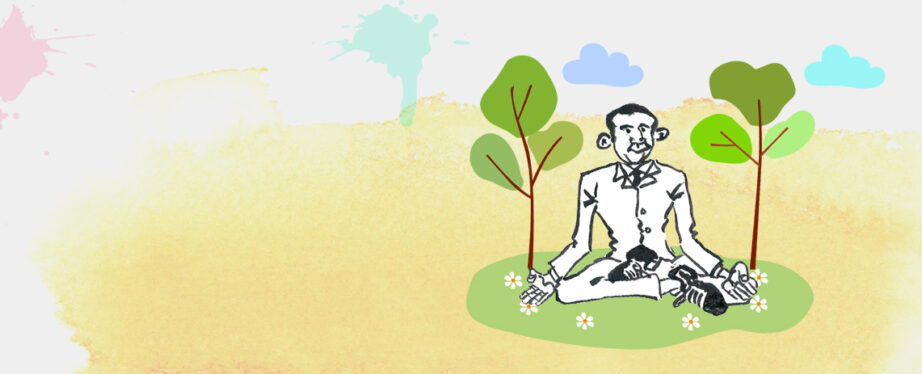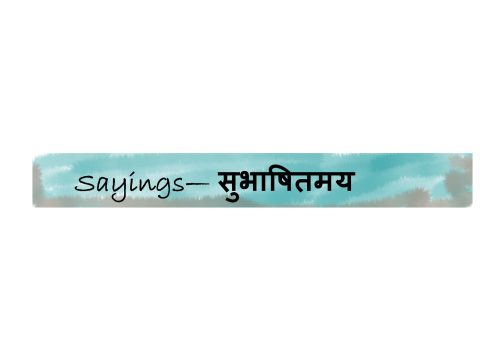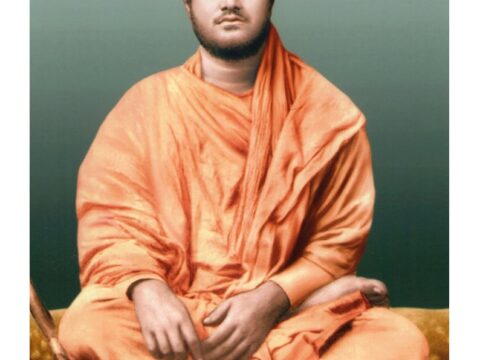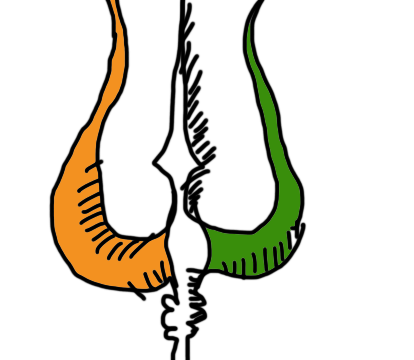It is difficult to decide where to start with a subject like Vedanta, with the innumerable source documents, commentaries, explanations, modifications, schools, sects, sub-sects, apologists etc. Actually, it does not really matter where you start. You see, the Vedanta philosophy is not a linear construct but a circular one. Therefore, you may choose to start at any point, but as long as you follow the core principles, you will come back to your current position, no matter what.
So what are these core principles of Vedanta ? Any why are they important not just to believers of the Hindu faith but all human beings ? The very first principle to understand is the concept that I am not this body. Ok, that was fairly simple but surely a tad confusing. If I am not this body, then what am I ? According to the Vedanta philosophy, I am primarily a soul or an individual sentient, conscious entity that is pure consciousness without any mass.
Ok, so I am a soul and not this body. But how did I get here ? Where did I come from ? Why did I come here. I can see my body, but I cannot see my soul. So, why should I believe this whole soul business ? As you can see, there are a lot of questions. One of the things I realised about the Vedanta is that usually there are more questions than answers and each answer leads to an exponentially larger number of questions. And there is a very good reason for that. However, this is not the right time to attempt to answer this question. We shall keep it aside for a later stage, perhaps after we have made some more progress in our understanding of this incredibly and sometimes frustratingly complex subject.
Coming back to our first set of confusing and frustrating questions. Another characteristic of the Vedanta philosophy is that , despite the terrible complexities, at its core it is very simple. You may say shockingly simple.
As human beings what is it that we most want ? Love, money, sex, power, honour and respect? Yes, yes, yes, yes, yes and yes ! And perhaps a lot more. However, it is not incorrect to say that all of us at our core want happiness. It is impossible to argue with this assumption as nobody deliberately wants to be unhappy. Yes, if you have done something terribly wrong and are feeling guilty about it, you may feel that you do not deserve to be happy. For example, you may have killed somebody for some reason, without anybody else getting to know. You may feel very bad about it, despite whatever reasons you had originally to carry out such a heinous deed. In your misery, you may feel that you have no right to be happy. In this example, by your very feelings of unhappiness, what is implicit is that the state of unhappiness is not comfortable for you and you would prefer to be come back to the state of happiness. Of course, under normal circumstances, if you are happy and comfortable after killing another human being, then surely you are a psychopath or worse. Well, if you are a psychopath and worse, then it may be well worth for your time and energy to read on, for there may be some help for you in the Vedanta.
This will hold true for all cases of unhappiness. There will be a cause for the unhappiness, which may or may not be in our control. But the universal law of cause and effect will hold true. For every effect, there has to be a cause behind it. There can be no effect without a cause.
Coming back to the Vedanta and happiness, all of us are unhappy at some time or the other. Some of us are unhappy all the time. Very few of us are happy all the time. Why ? Because, by definition, we cannot be perfectly happy in this mortal existence. Does that mean that there is a state of existence where one can be perfectly happy ? Yes, there is a such a state where not only can one be perfectly happy but can exist in perfect knowledge , outside the reach of the universal law of cause and effect or causality , as it is known technically in English. In Sanskrit, the technical term for the law of causality is Karma. But we shall leave Karma aside for the moment and come back to the state of perfect happiness That state is called Brahman. Wait a minute! Is that not one of the castes in India ?. No, the caste of brahmans is denoted with in smaller case b. Brahman with a capital B is the source of all existence. As well as non-existence.
Is not God the source of all existence ? So is this Brahman God ? Again, we may be getting a little ahead of ourselves. According to the Vedanta, ‘Brahman alone is real, the universe is unreal and the individual soul is none other than the Universal Soul’ ( Vivekachudamani by Sankaracharya, one of the greatest philosophers of India and the proponent of the concept of Advaita Vedanta).
We will come back to this most fascinating of topics about the greatest spiritual philosophy, which also has the most practical answers to all that ails modern civilisation. Till then, adieu !





